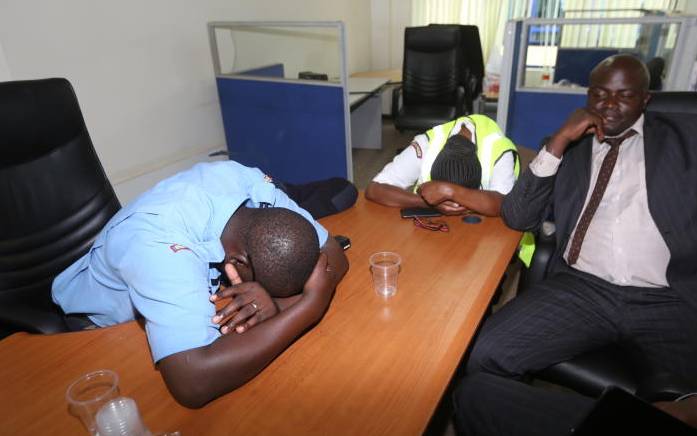×
The Standard e-Paper
Fearless, Trusted News

Four traffic police officers hiding their faces at Nakuru Ethics and Anti-Corruption Commission (EACC) office after they were arrested for allegedly taking bribes in this March 2017 picture. The Kenya Police Service has been mentioned by the 2018 EACC report as one of the most corrupt institutions. [Joseph Kipsang, Standard]
The Ministry of Interior and Coordination of National Government is the most corrupt ministry, this is according to a report released by an anti-graft body.